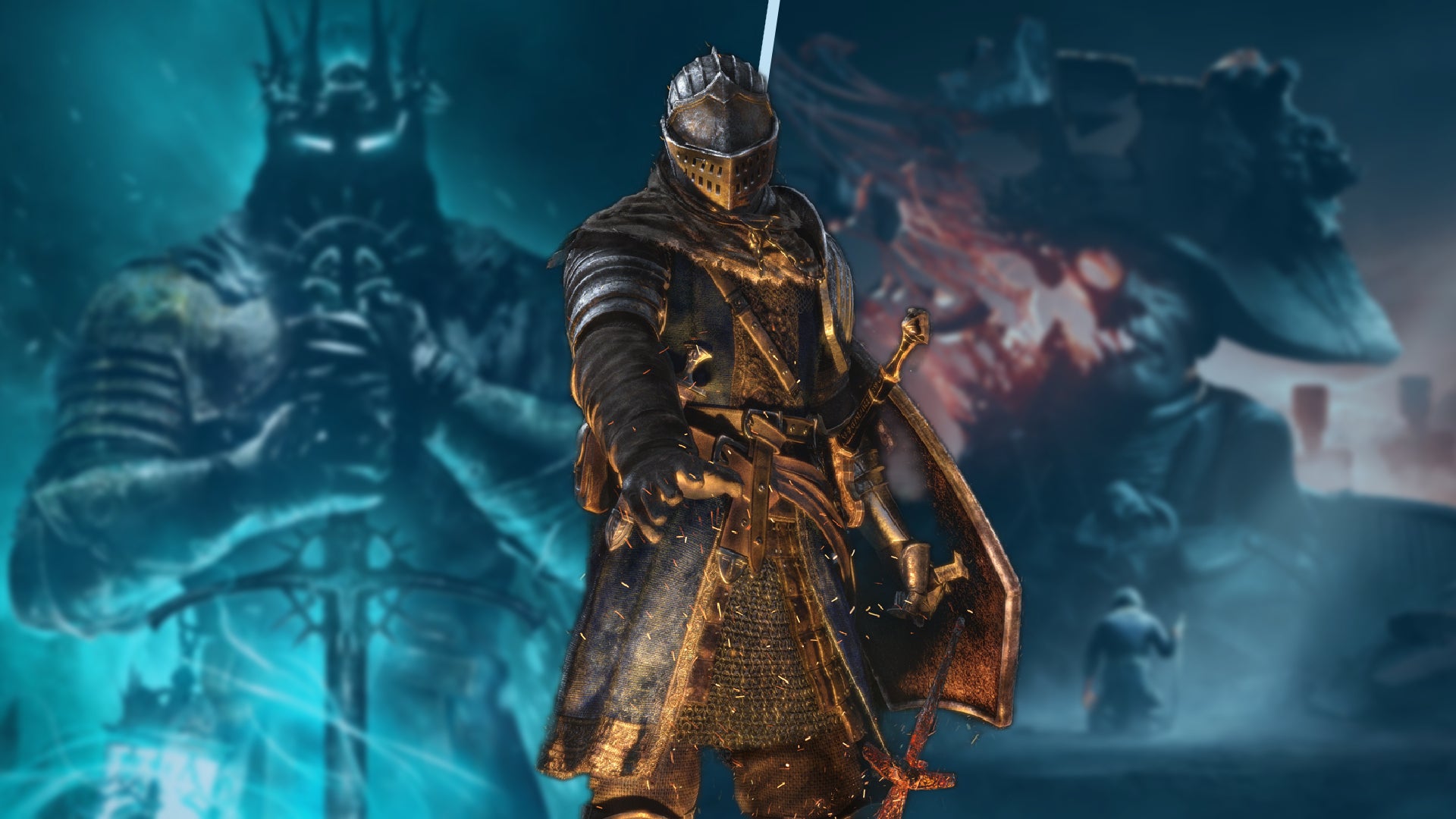The games industry has a Soulslike problem, but probably not the one you think

Back in 1993, a little-known game called Doom came out. It wasn't the first game to offer shooting in first-person, but it did popularise the genre. The games that followed became known as Doom-clones (often because they used the same engine), and it wasn't until the likes of GoldenEye, Half-Life, Halo, and more developed the genre further in the late 90s that the more neutral term first-person shooter was more widely used.
I feel we're facing a similar situation with Soulslikes. After the huge success FromSoftware found with its Dark Souls games, the term has been used for games imitating the studio's design. Yet fatigue is now setting in and the term is becoming redundant.
Take gamescom Opening Night Live. A load of (assumed) Soulslikes were announced, from a sequel to Lords of the Fallen, to the Napoleonic Soulslike Valor Mortis. But for most of these games, are they really Soulslikes? Or are they just third-person action-RPGs that have been conflated with FromSoftware's works as a lazy shorthand to garner attention?
Because what, really, is a Soulslike? Is it a third-person combat game with a stamina gauge? Is it a game where you lose your currency upon death? Is it a game with looping level design? Hidden lore? Or an action game that's just really hard?
To see this content please enable targeting cookies. Manage cookie settingsI'd argue a game needs to have all the above to truly be considered a Soulslike. Yet the problem here is the term constantly invites comparison back to FromSoftware's very specific work. And it's hard to compete with the originators of the genre. Heck, even FromSoftware itself has challenged the design philosophy of Dark Souls creator Hidetaka Miyazaki with subsequent entries, from Bloodborne to Sekiro to Nightreign.
If a studio adheres too closely to the Dark Souls formula, then it's a Soulslike - but a particularly derivative one. That results in copycat games that don't move the genre on meaningfully, featuring dark fantasy aesthetics, challenging combat, and little else. Yet there remain a handful of Soulslike games that do push the boundaries, finding their own unique aesthetics or combat rhythm. Lies of P, for instance, plays with its Pinocchio adaptation for its grim visual designs, while more recently Wuchang: Fallen Feathers finds a new rhythm to combat with its multiple systems - not to mention a fun twist on dying.
But what's most frustrating about the term Soulslike is the way it's used to describe almost anything as an up-front assumption before really playing. When it was first revealed in 2020, Black Myth Wukong was just assumed to be a Soulslike, until we finally went hands-on to find it had few of the genre's typical trappings. And every time Phantom Blade Zero is shown, its director "Soulframe" Liang has had to insist once again that it's not a Soulslike.
Eating sugar? Telling lies!? | Image credit: NeowizAs for ONL in August, it's safe to assume Lords of the Fallen 2 will fit the mould, while Valor Mortis is self-described as a first-person Soulslike - perhaps that shift in perspective will be enough to differentiate itself from the pack. But will the likes of Swords of Legends or La Divina Commedia really be Soulslikes? Or are they just third-person action RPGs?
The latest victim of the Soulslike misnomer is Silent Hill f. Where the remake of Silent Hill 2 included over-the-shoulder gun combat, this new game in the series instead focuses on melee combat. Does that make it a Soulslike? No, it doesn't. And yet the Silent Hill fandom became split on this new seemingly Soulslike combat, to the point the game's producer has had to step in and call those comparisons "disingenuous".
"This is one of the things that we see - the term Soulslike - being thrown around on the internet quite a bit," producer Motoi Okamoto told IGN in an interview. "And I think it's a label that's a little bit disingenuous. Modern players will see like, oh there's a stamina meter, there's a dodge, and they're like, 'Okay, it's a Soulslike'.
"But to be very honest, a lot of these things we actually pulled from classic Silent Hill titles. Look at Silent Hill 4 - there’s a charge meter for your attacks, kind of like our Focus meter. And even for Silent Hill 3 there's a stamina meter. You see it later on."
See - Okamoto gets it!
In Silent Hill f, the 'f' stands for 'f**ked up' (it doesn't). | Image credit: KonamiYou could make a similar point with the term Metroidvania, of course, or even Roguelikes. Yet Rogue was released so many decades ago that few nowadays remember it (in comparison to Dark Souls, at least), while I've increasingly seen the term Search Action used for Metroidvanias, which is a translation of the Japanese equivalent label. Is it time we come up with something new for Soulslike? Or is it enough to call those games action-RPGs?
Another element to this is the prevalence of these games coming from Chinese studios. I've written about this extensively, particularly how Black Myth Wukong's success has paved the way for other studios to follow. The industry has shifted from mobile games to PC and console games and as Liang told me, action-RPGs are ideal to exemplify that shift. "What's most attractive is obviously the performance of console games compared to mobile games, the fancy graphics and controls, and also the way the game tells the story," he said. "All of these are the features that will be best presented in an action-RPG."
What's more, studios in China (and Korea too) are seeking a global audience for their games outside of domestic players. Likening their games to previous hits - Dark Souls, Wukong - is a surefire shorthand to gain attention, but it's causing fatigue within the genre and turning Soulslike into a meaningless term.
Still, there's hope. After announcing Black Myth Zhong Kui as a new game in the series, Game Science CEO Feng Ji took to Weibo (as shared on reddit) to explain why the studio chose to create a new game, stating the studio wanted to create something new and experiment boldly. He even quoted Nintendo's late-president Satoru Iwata: "There is no future in merely extending what already exists."
Tiger, tiger, burning bright. | Image credit: Game ScienceI'm hopeful, then, we will soon see developers follow suit and break free from the chains of genre convention. And I hope, likewise, we'll see players stop referring to so many games as Soulslikes. Labelling is human nature and has its uses, but it's time to appreciate games for their differences without comparing back to a narrow definition of a singular body of work.













